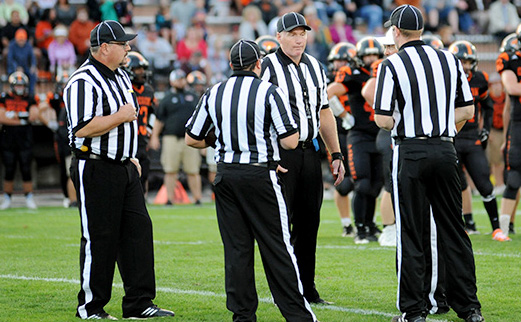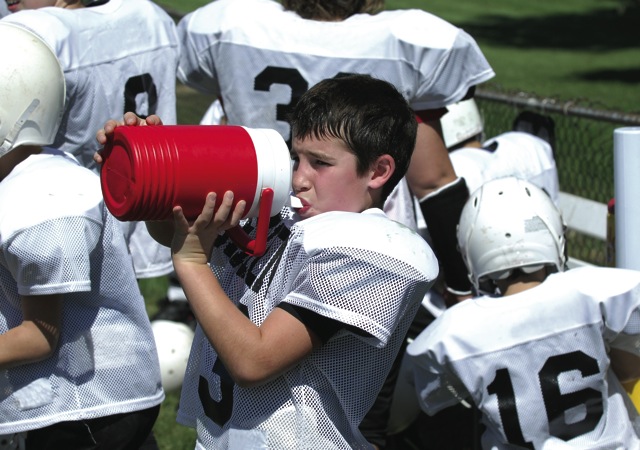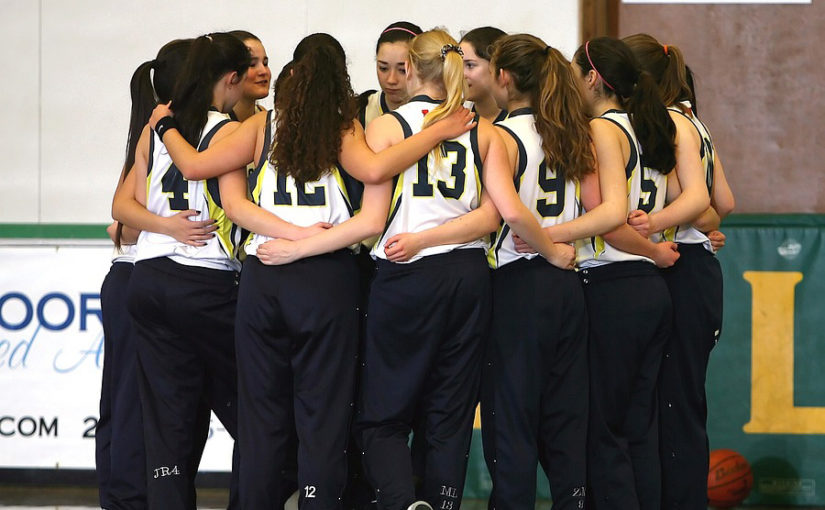Georgia’s Mark Richt Provides Monetary Gifts To Assistant; Actions Are NCAA Violations
Richt made personal payments of more than $25,000 to coaches and support staff due to what he perceived as inadequate compensation for those individuals. Richt’s actions were determined to be secondary violations of NCAA rules regarding supplemental pay, according to a recent NCAA review of an lengthy internal investigation conducted by UGA.
According to those reports, obtained by The Atlanta Journal-Constitution through the Freedom of Information Act, Richt paid former recruiting assistant Charlie Cantor $10,842 over an 11-month period through March of 2011, former linebackers coach John Jancek $10,000 in the summer of 2009 and $6,150 to director of player development John Eason in July of 2010. All of the payments were made by checks from Richt’s personal bank account after UGA’s previous athletic administration declined his requests for increased compensation for those parties.
However, Richt unknowingly violated the provisions of NCAA bylaw 11.3.2.2, which regulates supplemental pay for staff members. Both Richt and the staff members who accepted his payments received letters of admonishment from UGA and must undergo additional rules education, according to the documents.
Richt was unavailable for comment on Monday. Athletic Director Greg McGarity declined to discuss details about the case, but acknowledged that all the violations discovered were deemed secondary and that the NCAA considers it a closed matter as of Nov. 30th.
“The report stands on its own,” McGarity said on Monday. “There’s nothing to add. We’re moving forward.”
Richt’s unsanctioned payments were just a few of several violations discovered by UGA in an internal investigation led by attorney Mike Glazier of the NCAA-specialized lawfirm of Bond, Schoeneck & King of Overland Park, Kan. In all, the Bulldogs admitted to committing at least 10 secondary violations in separate reports submitted first to the SEC office in Birmingham.
The NCAA enforcement staff reviewed those reports and responded with its findings in a Nov. 30th letter to SEC Commissioner Mike Slive. In summary, the NCAA agreed with assertions of Georgia and the SEC that all the violations were secondary. As a result of actions already taken, “no further action should be taken by the NCAA in the matter,” wrote Christopher Stroebel, NCAA director of enforcement for secondary violations.
Also revealed in the report:
- Georgia was determined to have violated game-simulation recruiting rules during an unofficial visit last January by prospective student-athlete Marshall Morgan. Morgan is a place-kicker from Coral Springs, Fla., who has committed to sign in the class of 2012. Coaches played a video of the Georgia fans’ doing the traditional cheer, “Go Dawgs, Sic ‘Em,” on the Sanford Stadium videoboard, while Morgan pretended to kickoff. Richt self-reported the incident retrospectively after learning that the “missing man formation” the Bulldogs’ orchestrated for Isaiah Crowell last January constituted a secondary violation.
- Defensive coordinator Todd Grantham had impermissible contact with an unidentified recruit in May of 2010. After signing in at the front office of a high school, Grantham walked down a hall looking for the school’s football coach. Unable to locate the coach’s office, Grantham was approached by a young man who asked if he could help him find his way. As it turned out, that individual was the prospect Grantham was there to recruit. Their “small talk” on the way to the coach’s office exceeded the NCAA’s limits for “greetings” during a non-contact period and Georgia was found to be in violation of NCAA bylaws 13.02.4 and 13.1.1.1 regarding contact. As a result, Grantham was withheld from off-campus recruiting activities from Nov. 27-Dec. 3, the number of evaluation days for the football staff for spring of 2012 was reduced from 168 to 158 and Grantham was ordered to attend a two-day rules seminar next summer.
- An unidentified football prospect (his name was redacted because he is now enrolled at UGA) received impermissible overnight lodging and transportation during an overnight visit last year. The prospect was scheduled to spend the night with a student-athlete in a university dormitory, which is sanctioned, but made a “spur-of-the-moment decision” to stay with another student-athlete at an off-campus apartment. Off-campus lodging and transportation for which is impermissible.
- Last month, Georgia provided two free meals to Tyriq Gurley, the 5-year-old little brother of 2012 running back prospect Todd Gurley. Meals were permitted for Gurley and his parents but not for siblings on the official visit. The Gurleys reimbursed UGA $21.33 for the child’s meals and UGA reported a violation of bylaw 13.6.7.7.
Those minor violations were added to a list that included Crowell’s “the missing man formation,” the impermissible participation of football lettermen Randall Godfrey and David Pollack in the commitment announcement ceremony of then-prospect, and the routine overpayment of four graduate assistants due to a clerical error last spring, and several instances of inadvertent “pocket dialing” of prospects during impermissible periods earlier this year.
While all the violations are minor and seem trivial in nature, McGarity was profusely apologetic in his seven-page letter to Slive.
“I want you to know that I am disappointed and embarrassed to be reporting multiple secondary violations in our football program,” McGarity wrote. “It is my hope, however, that after reviewing our self-report of each of these matters, you will come to the same conclusions that I have.”
Ultimately, Slive and the NCAA agreed with Georgia’s assessment. But McGarity is vowed to step up the Bulldogs’ educational efforts regarding NCAA policy. In addition to regularly-scheduled classes, he has instituted monthly and quarterly meetings for coaches and support staff.
Clearly the most intriguing findings were those that detailed Richt’s under-the-table payments to staff when the previous administration refused his requests. Not only does it illustrate Richt’s determination to do what he perceived as right for his staff members, it offers a glimpse into the dynamics of the relationship between Richt and former AD Damon Evans.
- Richt decided to pay Cantor money out of his own pocket after determining that Cantor was underpaid for his position compared to comparable programs against whom Georgia competed. Richt asked for a $10,000 raise. However, the University was in the midst of a campus-wide pay freeze and was experiencing furloughs, so Evans declined. Richt subsequently paid Cantor $834 a month over 13 months via personal check.
- Richt did the same thing in the summer of 2009. Richt asked the administration for a raise for linebackers coach John Jacek after he was offered the coordinator’s position in the summer of 2009. Richt’s request was declined, so he wrote Jancek a personal check for $10,000 on June 30, 2009.
- Eason received a $6,150 pay cut when Richt moved him off the coaching staff into an administrative role. Richt wrote a personal check for that amount to Eason in July of 2010.
McGarity contends it wasn’t rogue behavior on Richt’s part. The UGA AD included exhibits in his report of instances in which the athletic department sanctioned monetary gifts from Richt.
In December 2009, due to “difficult economic conditions being experienced by the University,” the athletic department decided to not provide “bowl bonuses” to non-coach staff members. Richt went to senior associate AD Frank Crumley and asked him to provide a chart of who would have normally received bonuses and in what amount. Crumley provided that list and Richt paid 10 people – sports medicine director Ron Courson, video coordinator Joe Tereshinski, strength and conditioning coaches Keith Gray and Clay Walker, football operations manager Josh Brooks, high school relations director Ray Lamb and four administrative assistants — $15,227 out of his own pocket.
Richt also paid the $15,337.50 five-year longevity bonus to former assistant Dave Johnson when Johnson left Georgia in 2008 just short of his fifth anniversary and the administration refused to pay. Richt paid $6,000 to Jon Fabris in December of 2010 when Fabris was unable to find a job after his UGA severance package expired.
In each case,the payments were not considered against NCAA rules because they were done with the knowledge of the athletic administration, according to the report.
McGarity wrote in the report that he included details of those actions by Richt because “the University believes Coach Richt acted out of a generous heart and certainly without any intent to violate NCAA rules.” McGarity explained that Richt and his wife Katharyn maintain two checking accounts, one that is used primarily by his wife for household expenses. The other, monitored by Richt, is what they call their “Giving Account.”







